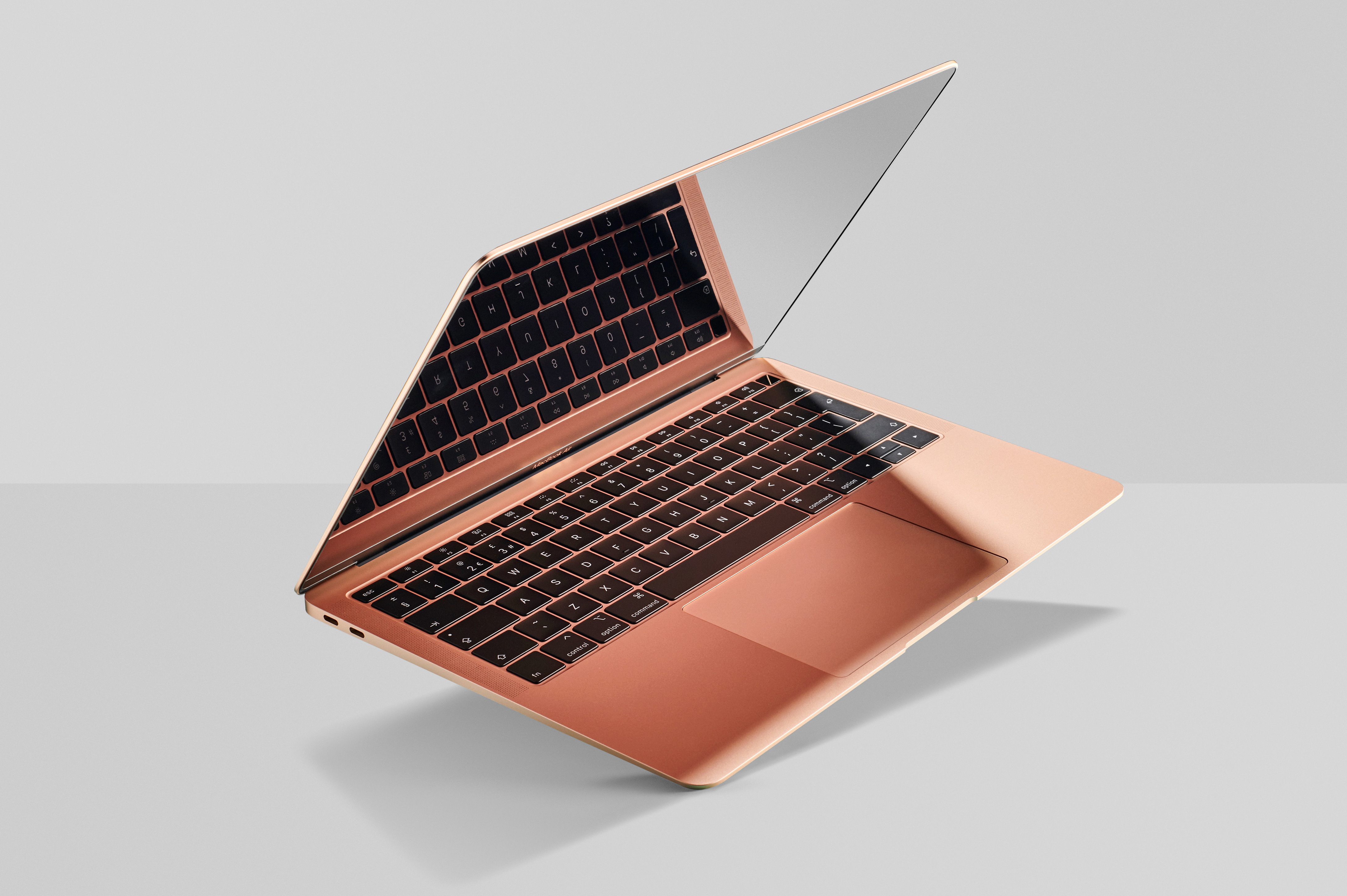

The 13-inch model received a SDXC-capable SD Card slot. Both 11-inch and 13-inch models had an analog audio output/headphone minijack supporting Apple earbuds with a microphone. An 11.6-inch model was introduced, offering reduced cost, weight, battery life, and performance relative to the 13.3-inch model, but better performance than typical netbooks of the time. On October 20, 2010, Apple released a redesigned 13.3-inch model with a tapered enclosure, higher screen resolution, improved battery, a second USB port, stereo speakers, and standard solid state storage. From left to right, MagSafe 2 power connector, USB port, headphone jack and built-in microphone. Left side of Second generation MacBook Air. A mid-2009 version featured slightly higher battery capacity and a faster Penryn CPU. Storage capacity was increased to a 128 GB SSD or a 120 GB HDD, and the micro-DVI video port was replaced by the Mini DisplayPort. On October 14, 2008, a new model was announced with a low-voltage Penryn processor and Nvidia GeForce graphics. The MacBook Air also did without a FireWire port, Ethernet port, line-in, and a Kensington Security Slot.
REASON 6 ON MACBOOK AIR SOFTWARE
To read optical disks, users could either purchase an external USB drive such as Apple's SuperDrive or use the bundled Remote Disc software to access the drive of another computer wirelessly that has the program installed. It was Apple's first notebook since the PowerBook 2400c without a built-in removable media drive. It was also Apple's first computer with an optional solid-state drive.

The MacBook Air was the first subcompact notebook offered by Apple after the 12" PowerBook G4 discontinued in 2006. It also featured an anti-glare LED backlit display, a full-size keyboard, and a large trackpad that responded to multi-touch gestures such as pinching, swiping, and rotating. It featured a custom Intel Merom CPU and Intel GMA GPU which were 40% as big as the standard chip package. The first generation MacBook Air was a 13.3" model, initially promoted as the world's thinnest notebook at 1.9 cm (a previous record holder, 2005's Toshiba Portege R200, was 1.98 cm high). Steve Jobs introduced the MacBook Air during Apple’s keynote address at the 2008 Macworld conference on January 15, 2008. In November 2020, Apple released the first MacBook Air with Apple silicon based on the Apple M1 processor. An updated model was released in February 2020 with the Magic Keyboard and an option for an Intel Core i7 processor. The third generation was released in October 2018, with reduced dimensions, a Retina display, and combination USB-C/ Thunderbolt 3 ports for data and power. Later revisions added Intel Core i5 or i7 processors and Thunderbolt. Apple released a second-generation MacBook Air in October 2010, with a redesigned tapered chassis, standard solid-state storage, and added a smaller 11.6-inch version. The Intel-based MacBook Air was introduced in January 2008 with a 13.3-inch screen, and was promoted as the world's thinnest notebook, opening a laptop category known as the ultrabook family. In the current product line, the MacBook Air is situated below the performance range MacBook Pro. Since then, the original MacBook's discontinuation in 2011, and lowered prices on subsequent iterations, have made the Air Apple's entry-level notebook. The Air was originally positioned above the previous MacBook line as a premium ultraportable. It consists of a full-size keyboard, a machined aluminum case, and, in the more modern versions, a thin light structure. The MacBook Air is a line of notebook computers developed and manufactured by Apple Inc.


 0 kommentar(er)
0 kommentar(er)
